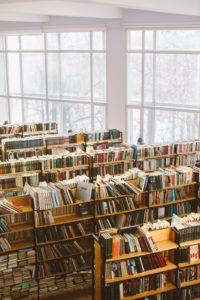 This interview features retired librarian Barbara Knootz. Barbara has worked in libraries all over Brevard County, including Melbourne, West Melbourne, and Satellite Beach locations.
This interview features retired librarian Barbara Knootz. Barbara has worked in libraries all over Brevard County, including Melbourne, West Melbourne, and Satellite Beach locations.
To start, can you tell me a bit about yourself and your career?
Barbara: I started 45 years ago as a secretary and a data entry operator for disability and social security of the state of Florida. After 30 years there, I retired, moved to Brevard County, and became a part-time librarian. I then worked as a librarian for 15 years before retiring.
What was your earliest memory of a library?
Barbara: The bookmobile was my first memory. It would come by our neighborhood when I was little, stay for several hours, and I was allowed to get one book. After I read it, I would make sure I returned it. It was so exciting. A very good experience.
How important were libraries to you growing up?
Barbara: The library was very important because my mom was busy and my dad worked a lot. I especially loved picture books. If I couldn’t read it, and my parents weren’t able to help, I could at least look at the pictures and get an idea of what it was about and what existed in the world. When you’re young, you don’t realize how much is out there, but books allow you the opportunity to learn.
In your opinion, how important are libraries in our culture today?
Barbara: Essential. Libraries are a great learning tool for the community and a center for youth activities. When I worked there, we had storytime for the kids. Even with the pandemic, the library put posters along the sidewalk near our library, and each poster would convey part of a story. Parents could then scan the posters through an app that would play sounds for the story like a horse naying or an owl screeching. A book would also go with the posters and be available to check out. I think it’s fantastic and helps the kids so much.
Additionally, libraries offer technology, study tools for college students, and internet access to those who don’t have it at home. The reference desk is also always there for people who have questions. If someone is working on a project or a job application, you can receive help finding resources. I personally learned how to get an email years ago through help from the reference desk. The worker helped me navigate to Yahoo, showed me the set up instructions, brainstormed an email name with me, and set me up for success.
What would you say the importance of literature and reading is to our modern age?
Barbara: The lessons taught in classic books or even movies are still relevant today. If the child isn’t old enough or isn’t interested in reading, movies also help them become informed and experience what has happened in the past. How we got started as a nation, why we enjoy certain music or dance, etc. On Easter Sunday, the library held an Easter egg hunt for the kids, and I asked if I could play my ukulele. I sang “Here Comes Peter Cottontail,” and many kids didn’t recognize it because it’s an older song. But the girls were hopping around, having a good time, and loved it. I think it’s fun to bring back some older folk songs or fairy tales and just remind kids that they’re available.
How can libraries help a new writer?
Barbara: Libraries offer many instruction books. Even reading author autobiographies would help a new writer learn how to draw from their own experiences to create a story. Little Women is a good example of that. Louisa May Alcott used tidbits from her life to create and formulate the story.
I believe there’s a story in all of us. Whether it’s how we grew up or the things we’ve learned, good or bad. There’s a story there if we want to develop it.
Who is your favorite author, or what’s your favorite book?
Barbara: Doctor Zhivago because it was the first adult book I read in probably seventh grade. I was about 12. I remember my grandmother saying, “Don’t you think that’s a little mature for you?” And I said, “No. The library let me check it out.”
The book was impressionable because it was centered around a different country in a different time, and I loved reading about what they wore, what their houses looked like, how they had to survive cold, harsh winters. I had no idea growing up in sunny Florida weather. The story stayed with me forever.
Is there anything else you would like to add to this interview?
Barbara: My brother-in-law is a digital person and has always thought libraries would eventually become null and void. But truthfully, with eBooks and other technology, I don’t believe so. There are still people who want to read actual books, and as long as they are available, I think there’s room for both. That’s what I hope to see, at least. The printed word is very important. If our computers go down, we need to have a backup, and our paper, our printed word, will be that backup.




